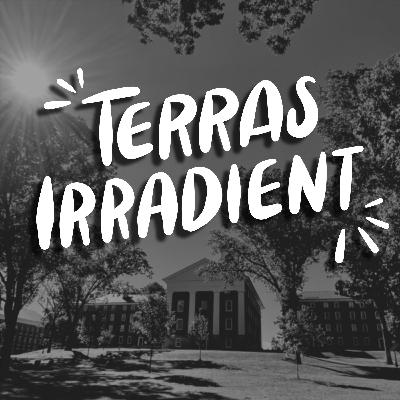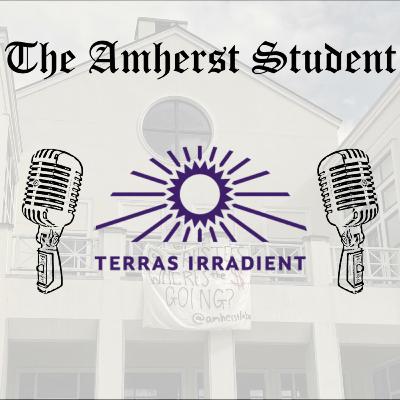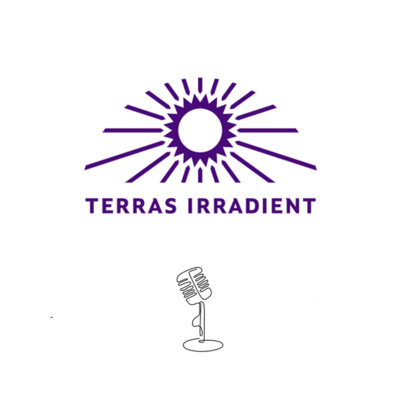Discover Terras Irradient
Terras Irradient

Terras Irradient
Author: The Amherst Student
Subscribed: 0Played: 2Subscribe
Share
© The Amherst Student
Description
The Latin motto on Amherst College's seal reads Terras Irradient, "Let them enlighten the lands." On this show, we consider how Amherst has, and has not, lived up to this world-bettering mission. Are elite liberal arts colleges inherently flawed, and what kinds of change are possible? Once a month, The Amherst Student will bring you answers, or at the very least, food for thought.
12 Episodes
Reverse
In March 2022, the Wesleyan Union of Student Employees made history by becoming the first undergraduate student union to be voluntarily recognized. This development arose on a changing landscape of labor militancy throughout the US: as the Amazon Labor Union was entering the national landscape, so did students at Iowa’s Grinnell College formalize a union for all student employees. How do the Amherst Labor Alliance, and the organizing traditions preceding it, fit into this picture? Why isn't Amherst unionized?
Edited by Isabelle Gomez and Karina Maciel '25.
If Amherst boasts a 93% graduation rate, then what are the stories of the forgotten 7%? Through the voices of transfer students -- that is, students who transferred away from Amherst -- we begin to answer this question.
Produced by Andrew Rosin '25. Edited by Andrew Kim '26.
What exactly does a career in public service entail? How and why do Amherst grads fail or succeed in entering the field? All these questions, and more, on this semester opener.
Read the rest of our series examining career outcomes at https://amherststudent.com/article/a-better-amherst-amherst-isnt-doing-its-job/ and https://amherststudent.com/podcast/the-student-sums-it-up-wednesday-april-20-2022/.
Produced and edited by Sam Spratford '24.
In 2020, 1/5 of Amherst College graduates went on to work in the finance industry; the next-highest number of grads — only 11% — went into consulting. In other words, finance is far and away the most appealing industry to Amherst students. At a school with such diverse opportunities, and which purports itself to be a progressive institution, why does there seem to be an Amherst-to-Wall-Street pipeline? What are the real reasons why so many Amherst students flock to the world of finance? On this episode, staff podcaster and writer Andrew Rosin '25 delves into these questions, and more.
Produced by Sam Spratford '24
Edited by Nicole Richards '23
In this episode, we discuss the enforcement and punishment processes of Covid-19 restrictions and other regulations placed on the student body. To shine a light on alternative judicial models, we interviewed a Reed College student. Should Amherst adopt these alternative principles of justice?
Episode Details:
Produced by Conner Glynn '24 and Karen Lee '25; edited by Sam Spratford '24.
It's hard to go a day without reading about divestment, either at Amherst or elsewhere. But why is divestment so hard? And why is it the only endowment-related initiative we talk about? On this episode of Terras Irradient, we explain why the endowment is such a hot button issue, how it works (and doesn't work), and how we can make it more equitable.
Act 1: Vanessa Glass '26, on Jews for Ceasfire Now's proposal for a Socially Responsible Investment Committee.
Act 2: Isabelle Anderson '25, on Young Democratic Socialists of America's campaign in favor of a Massachusetts endowment tax.
Referenced:
AAS Calls on Trustees to Divest from Israel’s War and Occupation
President and Chair of the Board of Trustees Respond to Alumni Divestment Letter
Trustee Resolution on Investments in Sudan
Proposal for a Socially Responsible Investment Committee At Amherst College
The Effect of College and University Endowments on Financial Aid, Admissions, and Student Composition
Edited and produced by Andrew Rosin '25.
How do departments decide which new professors to hire? Who allocates these hiring slots? What happens when a job search fails? On today's episode of Terras Irradient, Host Andrew Rosin '25 is joined by professors leading their department's search committees, the chair of the Committee on Educational Policy, and professors hired as recently as last month to discuss each stage of the faculty hiring process.
Edited and produced by Andrew Rosin '25.
If you've ever studied in the "C-Level" of Frost Library – colloquially known as "the Catacombs" – there's a good chance you've worked next to George H. Nash '67. Who is Mr. Nash? He's a scholar of American conservatism and a biographer of Herbert Hoover. He was a student at Amherst College when John F. Kennedy gave a speech at the dedication ceremony for Frost Library. And today, he's a loyal user of the Frost Library Catacombs. On this episode of Terras Irradient, Mr. Nash shares some of his favorite memories from his time at Amherst in the 1960s and from his career as an independent scholar. From watching the news of the JFK assassination in the Morrow common room to having dinner in Georgetown with Ronald Reagan, explore the life and career of the historian whose part-time office is the "C Level" of Frost Library.
How would Amherst College change if it eliminated athletic recruitment? What would the campus community gain or lose if Amherst did not have varsity sports? What is the student experience like at Reed College, a peer institution that does not have athletic recruitment or varsity sports? On this episode of Terras Irradient, host Andrew Rosin '25 is joined by Senior Managing Editor Dustin Copeland '25, varsity cross country and track star Theo Dassin '24, and Reed College junior Lucas Weiss to discuss the debate surrounding the potential end of athletic recruitment.
Edited by Karina Maciel '25 and Andrew Rosin '25.
Background Reading:
https://amherststudent.com/article/faculty-view-discuss-data-on-athletic-recruitment/
https://amherststudent.com/article/faculty-votes-to-release-discuss-data-on-athletic-recruitment-policies/
https://www.amherst.edu/system/files/media/PlaceOfAthleticsAtAmherst_Secure_1.pdf
It's April of 2023, and no Covid-19 era polices remain. But does this mean that the Amherst campus has returned to its pre-pandemic normalcy?
The current seniors -- members of the class of '23 -- will be the last class of Amherst students to have experienced Amherst before the pandemic. So, before they graduate, we asked three current seniors and two recent graduates to share their experience before and during the Covid-19 pandemic and to compare it with their experience on campus now.
What are the main barriers to getting involved in campus life for student-athletes? Why are some student-athletes more involved than others? And what can we do to better facilitate community engagement among student-athletes?
On this episode of Terras Irradient, host Andrew Rosin '25 is joined by Tom Ye '25, Lauren Dinhofer '23, Clay Zachary '23E, and AnLing Vera '25 to discuss the reasons why so many student-athletes struggle to get involved in campus life — and what we can do about it.
What does the Board of Trustees do? If you can't answer this question, you're likely not alone. Luckily, on this episode of Terras Irradient, we're joined by three members of Amherst College's Board of Trustees -- Andy Nussbaum '85, Paul Smith '78, and Shirley Tilghman -- to break down their role on campus. From the construction of the new student center to the wages of Valentine Dining Hall Employees, we answer all of your questions about this long mysterious group of individuals that we call the trustees. Also on this episode: how much does the political makeup of the board matter, and how can we improve communication between students and the trustees?









